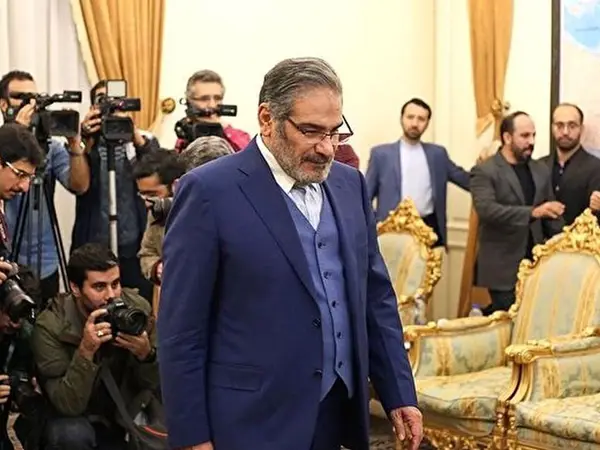Iranian media are speculating on the implications of Ali Shamkhani’s replacement with Ali Akbar Ahmadian as secretary of the supreme national security council.
Etemad, one of the two leading reformist dailies in Tehran wrote in a commentary on Tuesday that Shamkhani’s replacement might have been the result of fears on the part of hardliners that following his success in forging the Beijing-brokered deal between Iran and Saudi Arabia in March, he could have played a key role in reviving the 2015 nuclear deal with the United States.
According to Etemad, "the change was swift and odd." But this was not the only thing that was strange about the shift. The development completely played out on Twitter, a social media platform that is officially banned in Iran. Yet, first Shamkhani alluded to his departure by tweeting a piece of Persian poetry. Then Supreme Leader Ali Khamenei announced the replacement on his Twitter, and finally Ahmadian started his mission as security chief by tweeting a verse in Arabic from the holy Koran.
Subsequently, social media users came up with all sorts of analyses. Some even said it was the end of Shamkhani’s political career and linked his removal from the key post to his family's alleged financial corruption. However, Khamenei quickly appointed him as his political adviser and a member of the Expediency Council, some sort of an upper house in Iran's parliamentary system.
Within a few hours, many politicians including the hawkish Saeed Jalili, a Paydari Party figurehead, and a former nuclear negotiator, were mentioned as possible candidates for the post. Khamenei’s choice, however, was more pragmatic.
Another odd thing was the Raisi administration's absolute silence on the matter, other than the releasing an official announcement everyone knew was coming from Khamenei's house rather than the presidential palace.
Etemad pointed out that the execution of Shamkhani's former deputy Alireza Akbari, on charges of espionage, may have played a part in his replacement, as his hardliner political opponents were calling for his removal in recent months for the same reason.
Tehran's other leading reformist daily Shargh wrote in a long commentary on Tuesday that the change was expected for a long time. But it also pointed out that it marked the 10th anniversary of Shamkhani's presence at the security council. Khamenei usually changes his appointees at different institutions after five or 10 years. However, there are exceptions such as his representative to ultraconservative Kayhan newspaper, Hossein Shariatmadari who has kept his posts for a few decades.
Shargh wrote that regardless of Shamkhani's denial of his links to his former deputy Akbari, it was clear that the system was getting rid of Shamkhani at such a prominent position. The move, according to Shargh, started when a week after Akbari's execution, vice President Mohammad Mokhber fired Shamkhani and his relatives from the Arvand Free Trade Zone in Khuzestan.
According to Shargh, Paydari had a role in all those developments that were clearly part of the usual factional infighting in Iran. Some hardliners such as former lawmaker Hamid Rasaee openly called for Shamkhani's removal.
Critics on social media have opined that Shamkhani's appointment as Khamenei's political adviser does not necessarily mean anything. They pointed out that former Prime Minister Mir-Hossein Mousavi who has been under house arrest more than a decade now, is still officially Khamenei's political adviser! And with the caliber of other Expediency Council members, it is obvious that the appointment is only an excuse to keep Shamkhani under control like others such as former President Mahmoud Ahmadinejad.
Nonetheless, Donya-ye Eghtesad newspaper wrote on Tuesday that Shamkhani who once ran for president as a reformist candidate in 2001, is likely to prepare himself for the next presidential election in 2025. The daily pointed out that Shamkhani is not one of those politicians who would sit at the Expediency Council and do nothing.
